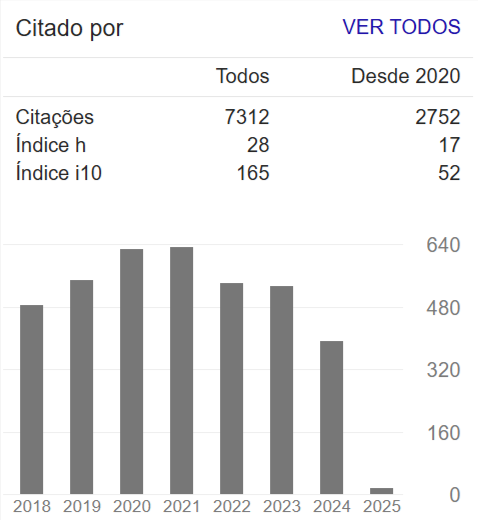Identification of the type of acidity responsible for groundwater aggressiveness
Abstract
The state of Ceará located in the Northeast region of Brazil, is entirely included in the so-called Drought Polygon and presents a regime marked by extreme irregularity of rainfall. The geological formation, with about 75% crystalline soils, makes the groundwater potential quite low but does not decrease its importance as an alternative water supply for the population. In the region it is common to collect groundwater from wells and depending on the aggressiveness of the water due to the presence of acidity, corrosion may occur in the concrete of the well and protection wall structure and in the iron pipes. Given the above, the study aimed to identify the type of acidity responsible for aggressiveness, based on the Langelier saturation index in well water located in five districts of two municipalities in the state of Ceará. Samples were taken in January, February and March 2020 and the analyses were performed at the Environmental Chemistry Laboratory of the Center for Technology and Industrial Quality in Ceará. According to the results obtained, it was concluded that the aggressiveness of the waters was due to carbonic acidity.

















